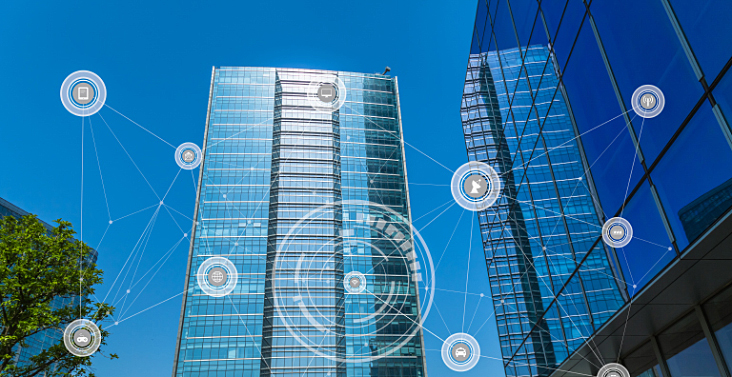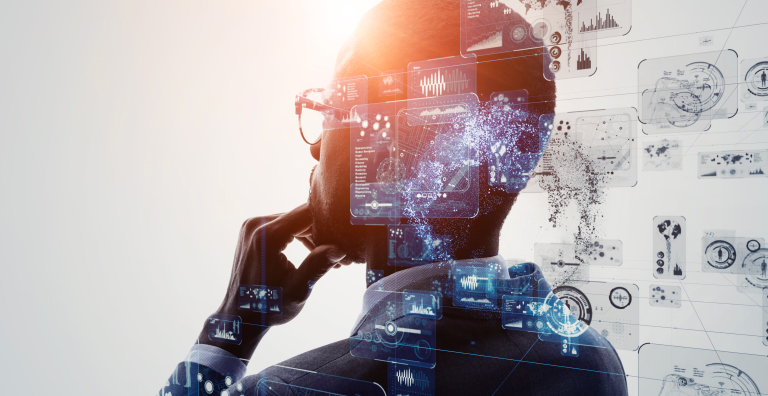3 Ways Mobile is Enabling the Future of Work
A company’s success is tied to its talent, and the last few years have tested nearly every organization’s culture — including its ability to deliver excellent employee experiences. Rapid transformation brought disruption, and the future of work became a trending topic.
What we’ve learned is that employee experience IS the future of work. Fortunately, existing technology is already equipped to help the workplace environment meet the needs of this new workforce.
In this blog post, we’ll explore how mobile solutions create connectivity, offer real-time insights and deliver management capabilities that are speeding up change. Explore what it means for you along with three important ways mobile is shaping the future of work.
The Future of Work Is Hybrid
Fully remote models were hailed as a future of work trend at the height of the pandemic. Meanwhile, digital solutions were embraced to support safer, contactless experiences for frontline workers and remote employees. Today, employees and employers both indicate that hybrid working is the preferred model. An Accenture report shows 83 percent of employees view hybrid work as optimal, while a Forbes Insights report on enabling the workforce of the future shows that U.S.-based executives are focused on ensuring a safe return to the workplace using technology to improve experience and provide flexible work arrangements.
Mobile devices are a defining characteristic of that experience. And while the use of mobile solutions is accelerating in all business sectors, it’s highly notable in corporate environments and commercial real estate. While adoption of security applications, such as mobile access for ingress and egress, has steadily risen over the last 6 – 8 years, today mobile use is about more than building access. What’s driving the trend?

Employee Expectation and Work Culture
Mobile applications have shaped the employee experience and exerted a profound influence over how people work. In 2014, 60 percent of employees used mobile apps for work-related activity. Today, 87 percent of businesses depend on their employees’ ability to access mobile business apps from their smartphone.
It’s also important to note that Generation Z will make up 27 percent of the workforce by 2025. The future of work depends upon supporting them. Gen Z is a group of digital natives with higher expectations for the workplace, including meaningful work. Research from Deloitte indicates that the most fundamental aspect of the workforce experience is work itself, including the efficiency, ease and effectiveness of the technology that enables productivity and value delivery to all stakeholders.
The embrace of mobile solutions promotes engagement with others, elevates the work experience and strengthens cultures of collaboration. This enables organizations to demonstrate a culture-first approach by aligning ways of working to their mission and values.
A (Flexible) Return to Work
Hybrid work models provide new opportunities to meaningfully improve employee experience within a building environment. Starting at the front door, this includes utilizing mobile technologies to enable personalized, collaborative and productive work environments.
Mobile devices offer data-driven and app-based approaches to building management, including lighting and temperature control. The day-in-day-out rhythms for on-site employees, for example, can be delivered and managed across their interactions with connected applications and spaces. What’s more, notifications for café specials, gym schedules and available desk locations can be automated and deployed when an employee is on-site, further enhancing their experience.

The Need to Right-Size Real Estate and Continue Contactless Experiences
Post-pandemic, commercial real estate (CRE) firms and office owners want to right-size investments based on need, facilitating high-value interactions and workplace productivity. Hybrid work models and their à la carte working schedules have changed how office space is utilized. For example, understanding day-to-day building usage helps administrators maintain proper square footage and manage associated amenities and services. In addition, contactless experiences remain a key consideration with a necessity for long-term solutions that deliver healthier spaces.
When included in a complete suite of connected solutions, mobile devices can deliver insights that empower CRE firms and their leasers to define critical priorities, investments and operations. Real-time occupancy data enables the effective use of space, helping administrators stay ahead of emerging situations and adjust to evolving needs. And while mobile solutions facilitate the collection of data for decision making, they also operationalize services through applications that enhance experiences and interactions, such as contactless and integrated authentication, wayfinding and meeting room reservations.
3 Ways Mobile is Enabling the Future Work Experience
The future of work is anchored in experience. Ensuring employee experiences meet employee expectations will lead to higher engagement and productivity. Mobile applications are making this happen and creating a positive impact on the future of work in three key ways outlined below.
Better Use of Space
Mobile supports the growing focus on productivity and space utilization through cloud-based applications. In a recent HID survey, access control systems were the most popular method to monitor occupancy data, with 42 percent of employees and 34 percent of visitors using them. Mobile apps for system management were rated the topmost impactful technology advancement to improve building and facilities management.
As the adoption of cloud-based systems takes hold, occupancy data derived from location services applications will drive more solutions based on when and where employees are on-site. This data will be used to support decisions regarding automated building management, tenant engagement applications, access control and real estate investment and divestment.
On-Site Toolsets for Dynamic Buildings
Mobile-enabled solutions offer benefits to building owners and operations managers by creating an integrated ecosystem that makes buildings intelligent. Occupant inputs into building systems, such as HVAC, energy, security and building access, allows for data-driven and timely decision making — not to mention better productivity, planning and high-performance buildings that are efficient and foster occupant productivity.
In addition, CRE firms can operationalize services through applications designed to foster engagement between owners, tenants and employees. From frictionless occupant access to available desks and personalized spaces, mobile solutions connect humans to their built environment.
We don’t have to imagine using a mobile app to autonomously book an activity-based space or set the temperature for that space prior to arrival — it’s possible today.
Collaboration Between Security, Operations and Third-Party Teams
Connected mobile solutions make it easier for teams to collaborate. For example, over the air provisioning of access control credentials make it easy to onboard new employees and revoke access for outgoing staff. Paired with visitor management solutions, vendors, contractors, and other collaborators can gain access without requiring a visit to HR or the card office. A simple email to the user activates a mobile credential that can be managed remotely.
All this leads to a more seamless and simplified end-user experience, making it easier for employees to maximize their on-site time and to collaborate more effectively with colleagues.

The Key to Success — Continued Workforce Enablement Through Digitization
Reliance upon mobile devices for professional applications and productivity is an unfolding trend. As the employee experience continues to define the future of work, technology that leverages mobile ecosystems enables organizations to combine cultural, digital and physical elements to improve the employee experience, no matter where they are.
Companies that are able to leverage mobile applications in the workplace will deliver a higher-quality experience for their employees — while simultaneously boosting productivity, supporting environmental and sustainability initiatives, and optimizing the use of high-cost real estate assets. Mobile offers the connectivity, real-time insights and granular management capabilities that organizational leaders will need to drive success in the workplaces of tomorrow.
Visit the Security and Identity Trends blog for more stories on mobile, the future of work and what’s happening in the industry.
Bevan has more than 20 years of experience in Smart Building technology, holding strategic roles in the build out of disruptive software product businesses and practices. His extensive background includes positions at Honeywell, Jibestream and McCann, working in the capacity of product leadership, enterprise sales and go to market. Bevan joined HID in 2020 as Product Marketing Manager responsible for the ongoing evolution of mobile access control solutions globally.
